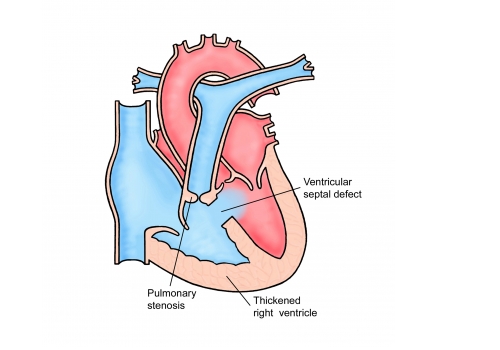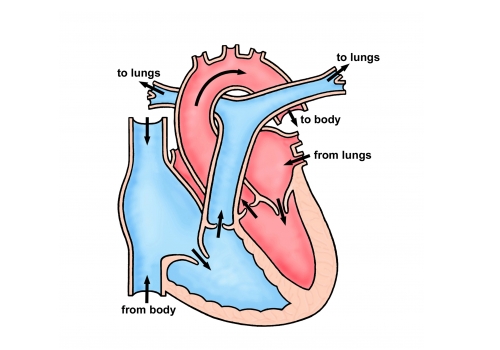Adult
- About
- Meet The Team
- Conditions
- Anticoagulation in Pregnancy
- Aortic Dilatation and Pregnancy
- Aortic Valve Disease
- Aortic Valve Replacement
- Atrial Septal Defect
- Coarctation - Transcatheter stent (keyhole) treatment
- Coarctation of the Aorta
- Congenitally Corrected Transposition of the Great Arteries
- Ebsteins Anomaly
- Eisenmenger’s Syndrome
- Fontan Circulation
- Mitral Valve Repair/Replacement
- Normal Heart
- Patent Foramen Ovale
- Pregnancy information for women with metal heart valves
- Pulmonary Incompetence
- Pulmonary Stenosis
- Pulmonary Valve Replacement - Surgery
- Pulmonary valve replacement - Transcatheter (keyhole) treatment
- Repaired Atrioventricular Septal Defects
- Sub-aortic Stenosis
- Surgical treatment of Atrial Septal Defect
- Tetralogy of Fallot
- Transposition of the Great Arteries - The Atrial Switch (Mustard or Senning) procedure
- Transposition of the Great Arteries – Arterial Switch
- Ventricular Septal Defect
- Ventricular Septal Defect - Transcatheter (keyhole) treatment
- Patient Feedback
- Making the most of your clinic appointment
- Your Appointment in Outpatients
- Easy Read Guide for Out Patients
- Cardiac Catheter
- Transoesophageal Echocardiogram
- MRI
- Surgery & "Top Tips" for coming into hospital
- Lifestyle Advice
- Exercise
- Heart Failure
- End of Life and Palliative Care
- Looking after your oral health
- Dentists Information Section: Dental care in adults at risk of Infective Endocarditis
- Yorkshire Regional Genetic Service
- Support
- Video Diaries
- Second Opinion
- Monitoring Results at Leeds Infirmary
- Professionals
Tetralogy of Fallot
Tetralogy of Fallot is a serious heart abnormality in which there are two main problems:
- There is a narrowing of the valve (the pulmonary valve) which lets blood pass from the heart to the lungs.
- There is a large hole (ventricular septal defect or VSD) between the two main pumping chambers (ventricles) of the heart.


Treatment in childhood
You are likely to have undergone major surgery during childhood to repair the heart by closing the hole (VSD) by sewing a patch over it and opening up the narrowed pulmonary valve. This operation is often referred to as “corrective” surgery, but it never makes the heart completely normal. Virtually all patients who have had surgery for Tetralogy of Fallot repair have an abnormal pulmonary valve.
A video explaining how Tetralogy Repair
Long-term follow-up
Regular review in the Outpatients department is very important even if you feel well. This is because we can monitor you and your heart and treat any problems that we know can be related to this particular heart condition. These include:
Heart rhythm abnormalities
Some people with Tetralogy of Fallot are troubled with abnormal heart rhythms. These can cause the heart to beat very fast, causing light-headedness, dizziness and even collapse. It is very important to let us know if you suffer from these symptoms as they can be serious and may need treating. A series of tests can help us identify a heart rhythm abnormality which include an electrocardiogram (ECG) which is a heart tracing, a 24 hour tape recording of your heart rate, which you wear whilst you are getting on with your day to day activities. Treatment of heart rhythm abnormalities is often with medication, but sometimes if they are uncontrollable a special pacemaker called an implantable defibrillator may be required.
Pulmonary valve abnormalities
After your operation, we will monitor your heart in the Outpatients Department, with regular echocardiograms (heart scans). This allows us to look at the function of your heart and to check if the pulmonary valve is functioning adequately. Some patients have pulmonary valves that “leak” i.e they do not work effectively, which makes the right side of the heart work harder. If this continues, the heart will tire. Therefore, to make the heart work more efficiently, the pulmonary valve may need to be replaced, which will mean another open-heart operation. Your cardiologist will discuss this with you in more depth if you require further treatment.
Here’s a video explanation of pulmonary incompetence (or pulmonary regurgitation) and its treatment by pulmonary valve replacement.
How will this heart condition affect my life?
After a successful operation in childhood, you should not be limited in what you can and cannot do in life. There are a few lifestyle issues that need to be discussed, to ensure your safety and good health.
Exercise
Exercise and being generally active has many health benefits and we would encourage you to participate and enjoy all types of sports and activities. We usually recommend that you avoid sports or activities which involve really hard sustained exercise (like marathon running) or those that are played at a competitive level as this can potentially cause strain on the heart.
Having children of your own
If you are planning a family it is important that you discuss this with your cardiologist BEFOREHAND, so that he or she can provide you with information and support throughout the pregnancy.
There are two main points that you need to know:
- If you have been born with Tetralogy of Fallot (this relates to both men and women), you have a small increased risk of having a child with congenital heart disease. This risk is approximately 4-5% risk (approx 1 in 20) compared to less than 1% risk (1 in 100) if you do not have Congenital Heart Disease. Due to this increased risk, a detailed scan of the unborn baby’s heart can be performed at approximately 18-20 weeks, to assess for any problem in the heart.
- For female patients who wish to get pregnant, it is important you discuss this with the cardiologist, as they may wish to assess how your heart will cope and if any medication can affect the baby’s development. The majority of women after Tetralogy of Fallot repair cope well in pregnancy.
Endocarditis
All patients with Tetralogy of Fallot are at risk of infection in the heart (endocarditis). Such infections may be caused by infections of the teeth or gums. It is important to visit the dentist regularly, but you no longer require antibiotics prior to dental work. Due to the increased risk of infection we would also advise against body piercing and tattoos.
Travel
The majority of people can and do fly/travel long distances around the world. If you are unsure ask at your outpatient appointment. The most important point to remember is to ensure you declare your heart condition when booking travel insurance.
